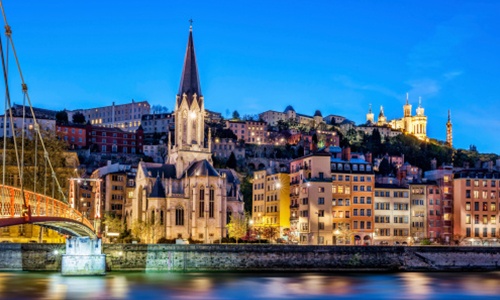
Lyon, France
The GDP of Lyon is 62 billion euro, and the city is the second richest city after Paris. Lyon and its region Rhône-Alpes represent one of the most important economies in Europe and can be compared to Philadelphia, Mumbai or Athens concerning its international position. Lyon is the 14th favorite city in the European Union concerning the creation of companies and investments. High-tech industries like biotechnology, software development, game design, and internet services are also growing. Other important sectors include medical research and technology, non-profit institutions, and universities. The city is the headquarters of many companies like Euronews; Lyon Airports; BioMérieux; Sanofi Pasteur; LCL S.A.; Cegid Group; Boiron; Infogrames; Groupe SEB; Renault Trucks; Irisbus; LVL Medical, GL Events; Compagnie Nationale du Rhône; and intergovernmental agencies IARC. The worldwide headquarters of Interpol is located there. The district of Confluence, in the south of the historic centre, is a new pole of economical and cultural development.






